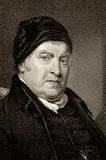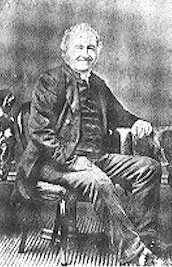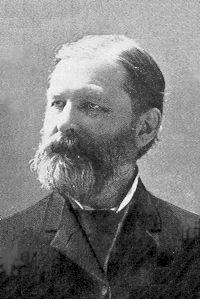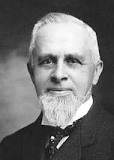The Baptists have over the past centuries contributed a lot to Church hymns. Starting from the Anabaptists in Europe to the Baptist in America, Baptist Church members have composed thousands of hymns.
Unfortunately, most of the hymns from the Anabaptists are lost forever.
In this post, I will try to focus on a few famous old Baptist hymns writers whose songs we still use to this day.
John Fawcett, “Blest Be the Tie That Binds”
One of the most famous Baptist musicians is John Fawcett, the author of that famous hymn, Blest Be the Tie That Binds.
John Fawcett was born on January 17, 1740, at Lidget, Green, near Bradford, Yorkshire. He lost his father when he was only eleven years old.
His death left his family in destitution.
At the age of sixteen, John was converted after listening to a sermon by George Whitefield based on John 3:14, “And as Moses lifted up the serpent in the wilderness, even so, must the Son of man be lifted up.”
After hearing this sermon, John Fawcett is reported to have said afterward, “As long as life remains I shall remember both the text and the sermon.”
After his conversion, he initially attended the church services of the Church of England. Not long after he joined the newly organized Baptist church in Bradford.
After some serious contemplation and meditation, he decided to take up preaching of the gospel.
He started off in 1763 preaching a sermon at his church at the request of his pastor.
A year later he became the pastor of the Baptist church at Wingate, near Halifax, West Riding of Yorkshire. He was ordained there the following year.
In 1772 he was invited to London where he covered for Dr. Gill, an eminent bible expositor, who was nearing the end of his long life on earth.
He was later invited to succeed Dr. Gill at his passing.
On the day of his departure from Yorkshire, he preached his farewell sermons and thereafter he and his family loaded their belongings in six or seven wagons.
However, his impending departure broke the hearts of the members of his small church who loved their pastor so much.
They prayed earnestly that he would change his mind.
As the time of his departure approached his sad and broken-hearted members clung to him and his family.
This broke John Fawcett and his wife’s heart so that they began to weep.
He and his wife were touched by the events of that day that they decided to remain in Yorkshire.
To commemorate this event John Fawcett composed the well-known hymn “Blest Be the Tie That Binds”.

Below is a video of this hymn for your listening and contemplation.
His other hymns that are not so famous now include:
“Religion is the chief concern,”
“How Precious is the book divine,”
“Thy way, O God, is in the sea,”
“Thy presence, gracious God, afford,”
“Praise to thee, thou great Creator,”
“Thus far my God hath led me on,”
“With humble heart and tongue.”
John Langford
John Langford is another Baptist hymn writer who lived in the United Kingdom.
He initially served as the pastor of the Baptist church in Blockfields, Southwark.
Thereafter he served three or four more areas as a pastor.
Unfortunately, there is a sad ending to his life as he was forced to retire from the ministry for some unknown discretions.
He later inherited a fortune from a relative that he squandered in extravagance and died in poverty in 1790.
He is associated with the famous hymn, Redeeming Love, which is however disputed by some scholars.
It was, however, he who included this hymn in “Hymns and Spiritual Songs” hymnal that he published in 1776.
Below are the lyrics of Redeeming Love.
1 Now begin the heavenly theme,
Sing aloud in Jesus’ name!
Ye who His salvation prove,
Triumph in redeeming love.
2 Ye who see the Father’s grace
Beaming in the Saviour’s face,
As to heaven ye onward move,
Triumph in redeeming love.
3 Mourning souls dry up your tears;
Banish all your guilty fears;
See your guilt and curse remove,
Canceled by redeeming love.
4 Ye, alas! who long have been
Willing slaves of death and sin,
Now from bliss no longer rove;
Stop, and taste redeeming love.
Edward Mote (1797 – 1874)
My Hope Is Built on Nothing Else is one of the Baptist hymns that have blessed the church for over a hundred years now.
The author of this hymn is Edward Mote.
According to Mr. Miller author of Singers and Songs of the Church, Mr. Mote informed him that this hymn came to him on a walk in Holborn Hill, London, on his way to work in 1834.
He initially wrote four stanzas but added the other two the following Sunday.
He told Mr. Miller that the words were immediately used to comfort a dying friend.
And this song continues to comfort millions of Christians around the world.
Edward Mote was born in Upper Thames Street, London in 1797.
He was born in a non-religious family but he later on his youth converted to Christianity.
He became the pastor of Horsham Baptist church in Sussex in 1852.
In 1873 his health began to fail, and he stopped preaching as he was now unable to prepare his sermons. His health continued to deteriorate the following year.
On the day before he died, he spoke of the “precious blood, which takes away all our sins; it is, this makes peace with God.” He passed away on November 13, 1874.
Even though he is in the grave we continue to get blessed by this beautiful hymn.

Below is a video of this beautiful hymn.
Robert Lowry, Author of Shall We Gather at the River.
Robert Lowry was born on March 12, 1826, in Philadelphia, Pennsylvania, United States of America.
He was born Presbyterian but later, joined the Baptist Church.
He joined Bucknell University to be trained as a minister of the gospel. He graduated in 1854 and was ordained the same year.
His first assignment was pastor of the First Baptist Church in West Chester, Pennsylvania.
Besides preaching he was best known as a composer of hymns. In his life, he edited various music books including the following, “Gospel Melodies” (1868), “Bright Jewels” (1869), “Pure Gold” (1871); “Royal Diadem” (1873); and “Tidal Wave” (1874).
His best-known hymn is “Shall We Gather At The River“. Others are “Shall We Know Each Other There”, “One More Day’s Work For Jesus”, “Jesus Is My Savior”.

William H Doane
William is another popular hymn composer who composed hundreds of hymns in his time. He was born in Preston, New London County, Connecticut on February 3, 1832.
Among the songs that he composed or added music to and are still popular today include,
“Safe in the arms of Jesus”, “Rescue The Perishing“; “More Like Jesus Would I Be”; “Near The Cross, A Trembling Soul”; “Pass Me Not, O Gentle Savior”; “Jesus, Keep Me Near The Cross”; “More Love to Thee, O Christ”; “Take The Name of Jesus With You”.
The words of most of the songs above came from the pen of Fanny Crosby who was a close friend of William Doane.


